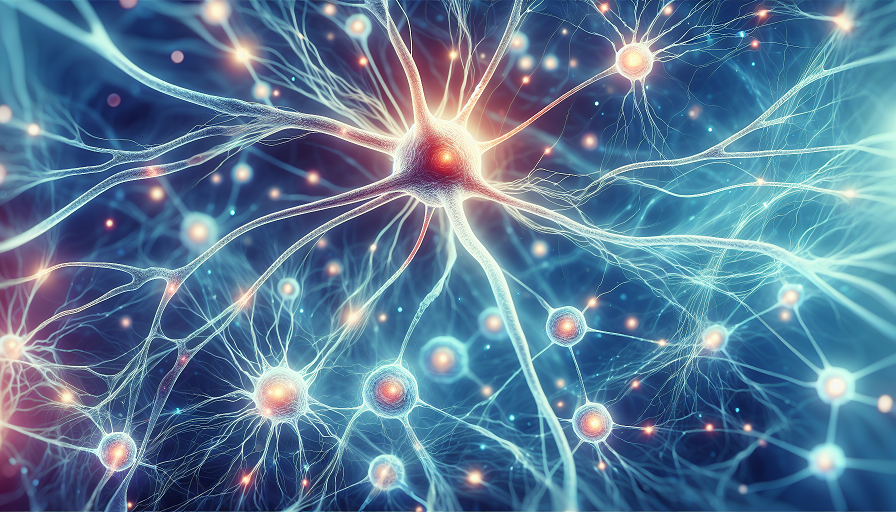
When faced with a long night of studying or crunching deadlines, many people have traditionally reached for a comforting cup of coffee. The ritual of sipping a hot brew not only delivers a comforting pause but also the caffeine boost needed to power through sleep deprivation. Recently, however, nootropics have emerged as a trendy alternative to coffee, promising sharper focus and cognitive benefits without the jitters. But are nootropics really the new coffee for pulling all-nighters?
Contents
Understanding Nootropics
Before diving into the debate, it’s essential to understand what nootropics are. The term “nootropics” generally refers to substances that enhance cognitive functions such as memory, creativity, and motivation. They’re often called smart drugs or cognitive enhancers. While the category includes a wide array of substances, from natural supplements to synthetic compounds, all aim at improving how our brain works.
Natural vs. Synthetic Nootropics
Nootropics can be classified into natural and synthetic categories. Natural nootropics include things like ginkgo biloba, omega-3 fatty acids, and even caffeine itself, found in coffee. These have been used for centuries to promote brain health and cognitive function.
Synthetic nootropics, on the other hand, are created in laboratories and often require a prescription. Examples include drugs like Modafinil and Adderall, well-known for their abilities to enhance focus and alertness. It’s crucial to remember that while these can be effective, they also come with a risk of side effects and addiction.
Coffee: The Traditional Go-To
Coffee’s popularity among students and professionals working late is not by accident. It’s well-known for its caffeine, which blocks adenosine receptors in the brain, preventing the sensation of sleepiness. Additionally, the process of brewing and drinking coffee offers a comforting routine that many find soothing during stressful times.
Benefits of Coffee
- Boosts alertness and focus.
- Contains antioxidants that may have long-term health benefits.
- Widely available and socially accepted.
Downsides of Coffee
- Can lead to jitteriness and anxiety, especially in high doses.
- May cause a crash in energy levels after the effects wear off.
- Potential for increased heart rate and digestive issues.
Nootropics vs. Coffee: The Key Differences
At first glance, it might seem that nootropics and coffee offer similar benefits for those late-night study sessions, but there are notable differences. While coffee delivers a relatively straightforward jolt of energy through caffeine, nootropics can offer a range of cognitive enhancements depending on the type used.
Advantages of Nootropics
- Targeted effects, such as improved memory or creativity.
- Potentially fewer side effects like jitteriness, depending on the substance.
- Some nootropics may support brain health in the long term.
Risks of Nootropics
- Insufficient research on long-term effects for many compounds.
- Possible legal restrictions for certain synthetic nootropics.
- Risk of dependency or misuse, particularly with prescription medications.
Why the Shift Toward Nootropics?
The growing interest in nootropics over coffee can partly be attributed to the modern culture’s focus on achieving more with less time. With academic and professional pressures mounting, individuals are constantly searching for competitive edges to stay ahead. Nootropics appear to offer these advantages by promising improved concentration and enhanced learning capabilities.
Cultural Influence
Popular culture and media often glamorize the use of nootropics, depicting them as life-changing “smart drugs” that open the doors to uncharted potentials. High-profile tech personalities and ambitious students have publicly endorsed these substances, increasing their allure and social acceptance.
What to Consider Before Switching
While the hype around nootropics is palpable, it’s vital to approach them with caution and informed skepticism. Here are a few things to consider if you’re pondering a switch from coffee to nootropics for managing all-nighters:
Research and Consultations
Only a handful of nootropic substances have been thoroughly researched. Before trying a new compound, read up on its effects, benefits, and risks. Consult healthcare professionals, especially if you are dealing with underlying health conditions.
Trial and Error
Effectiveness can vary significantly from person to person. What works wonders for someone you know might not have any effect on you, or worse, could lead to adverse reactions.
Legal and Ethical Considerations
Some nootropics may be controlled substances depending on your location or profession’s regulations. Always ensure your usage aligns with laws and ethical standards.
Lifestyle Habits
Relying on nootropics or coffee to consistently pull all-nighters might be a short-term fix. Consider developing sustainable habits that support mental and physical health, like good sleep hygiene, regular exercise, and a balanced diet.
The Future of Focus
The debate over whether nootropics are the new coffee for the all-nighter culture reflects an ongoing evolution in how society approaches productivity and health. Each alternative has its merits and drawbacks, and the best choice often depends on individual needs and lifestyle. As research on nootropics continues to grow, it will be fascinating to see if they become a staple in our homes and workplaces, much like coffee is today.

